FromSoftware’s venerated Dark Souls series succeeded through a rather distinct cocktail of obscure mysteries, Gothic horror, hard-earned knowledge, and a brutal challenge to survive against all odds. Several games have since tried to make it work, but many of them have paled in comparison to their inspiration. Mortal Shell isn’t one of those games. For the first time since treading through Lordran, it feels like someone understands the key principles that make a great Souls-like and how to evolve them into something fresh.
At first glance, Mortal Shell tosses out a ton of established Souls-like conventions. Forget worrying about poise or stats for character builds as your protagonist, Foundling, instead inhabits the bodies of four different, long-since-dead warriors as shells. They’re predefined archetypes, like a warrior and rogue, and there are only four weapons planned in total for the entire game. What might sound like oversimplification actually focuses the experience wonderfully, tip-toeing carefully between Mortal Shell’s inspirations and a more streamlined Souls-like experience.
Mortal Shell starts you off with a quick-yet-thorough tutorial, covering all your basic moves. As you’d expect, there’s a quick-draining stamina meter and a fragile health bar to manage, but also a “resolve” meter that gains charges over time. Have enough resolve stored up and you can unleash a special attack that drains enemies of their health, with the counterbalance that every time you use a healing item, it drains your resolve. Each shell has different levels of resolve, with the weaker rogue character only boasting two charges, while the knight can earn up to six.
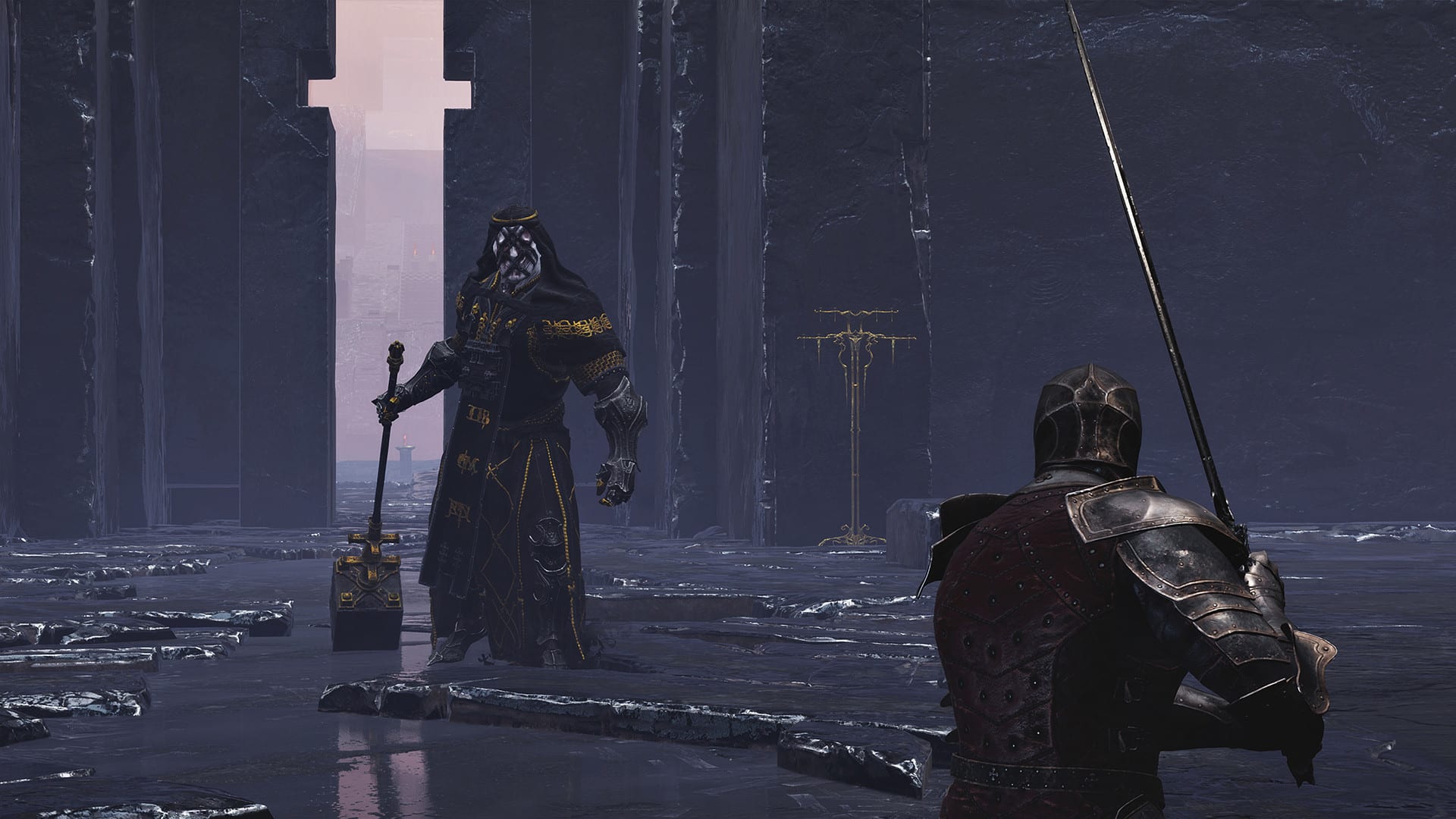
Another welcome wrinkle is the hardening system. At any time, you can coat yourself in stone, freezing in place mid-motion, including during attacks. Hardening yourself grants a free perfect deflection of an enemy attack, knocking them back and leaving them open for a strike, as well as a brief few seconds of damage resistance afterwards. The trick is you have to wait on a recharge timer after every use, leaving you vulnerable unless you can time a parry attack with your sigil.
The hardening system and parrying sigil work together beautifully as a means to tip the scales in your favor, offering a high-risk/reward strategic option for those who don’t want to just tough it out through tanking or lots of dodge rolls. Those old-faithful options are still viable, but — especially in a boss fight — hardening through an otherwise unblockable attack is valuable. It won’t win the battle for you, but I can instantly see it being a boon for those who’ve struggled with timing blocks and parries in similar games. Plus, the ability to have an attack charged while frozen means you can get a free hit in with precise timing, which can save you a lot of hurt when used right.
This emphasis on strategic second chances is reinforced by how the shells behave when it comes to death. Fail to keep your shell intact, and you’ll be excised from it, your Foundling made bare to the world with a sliver of health. If you’re skilled enough, you can still fight, retaining your offensive capabilities, but at a high risk. Alternatively, you can dash through the fray to reclaim your shell. If you re-inhabit your shell, know that the next time you’re knocked down, it’s for good, and you’ll have to fight your way back to your experience in Souls-like tradition.
However, if you turn the tide, you’ll retain all you have and cleave a nice, tidy path back to spend your experience points. Though how quickly you reach that point will depend on your familiarity with Souls-likes. Not only are Mortal Shell’s mechanics built to be viable for new players and veterans alike, but its world design too. For veterans, an optional boss is available within moments of exploring the starting area, offering an early test to kick the tires on Mortal Shell’s combat.
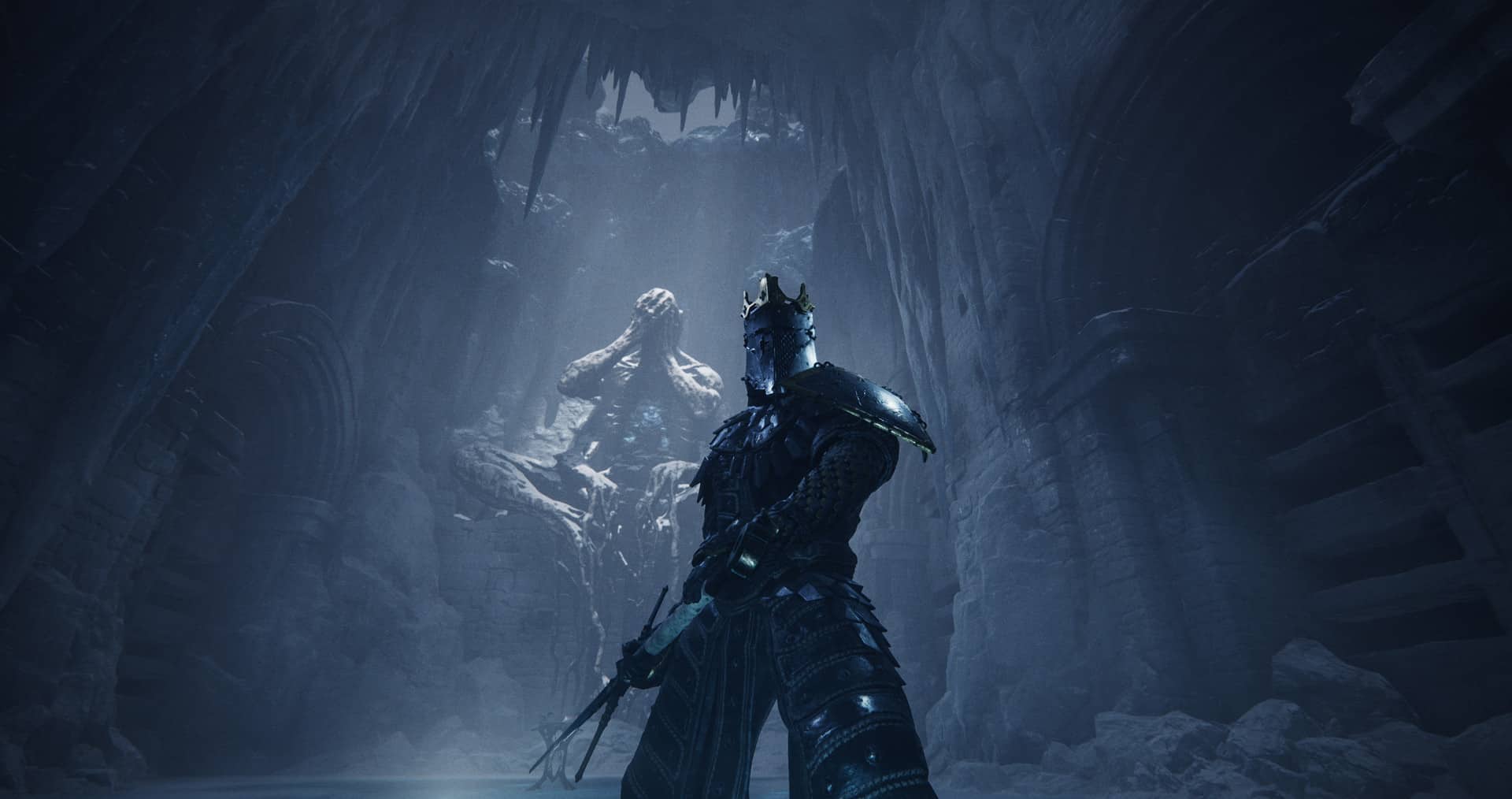
For beginners, there’s a warm-up encounter with two weak enemies and three different paths to take on the way to a mysterious oracle who serves as Mortal Shell’s bonfires. One path involves a mob of weak enemies, another has a trio of stronger sphinx men, and finally a third route boasts ranged enemies and a handful of weaker melee attackers. Along the way you earn tar (see: souls) and glimpses (a currency that you’ll retain even after dying) and enough knowledge to know what you’ll want to improve by the time you can spend them. All types of players are accommodated within the game’s first area, and it grows from there.
By the time you reach the second area, Mortal Shell is already introducing death pits, more mixed enemy encounters, poison, and a greater emphasis on evading enemy attacks. Every twisted, gnarled monstrosity it throws at you in the caves wouldn’t feel out of place in a Clive Barker story, pulling blades from their chests to impale you, leaping forth with giant cleaving arms. Yet, Mortal Shell rarely ambushes you with them unless you charge in head first. As with its spiritual predecessors, patience, mindfulness, and knowledge are far more valuable than perfecting a dive-thrust with your sword or hammer and spike.
This emphasis on careful experimentation lends a mischievous air to learning the ins and outs of Mortal Shell’s world. You learn more about each of your shells’ old lives by investing your tar and glimpses into each of them. More of the world is unveiled as you use items as well, revealing what offers you a boon or curses you, as well as more esoteric traits and lore. Mortal Shell’s setting asks you to piece together the greater narrative and its many spiraling threads, with each of your shells having a place in that story.
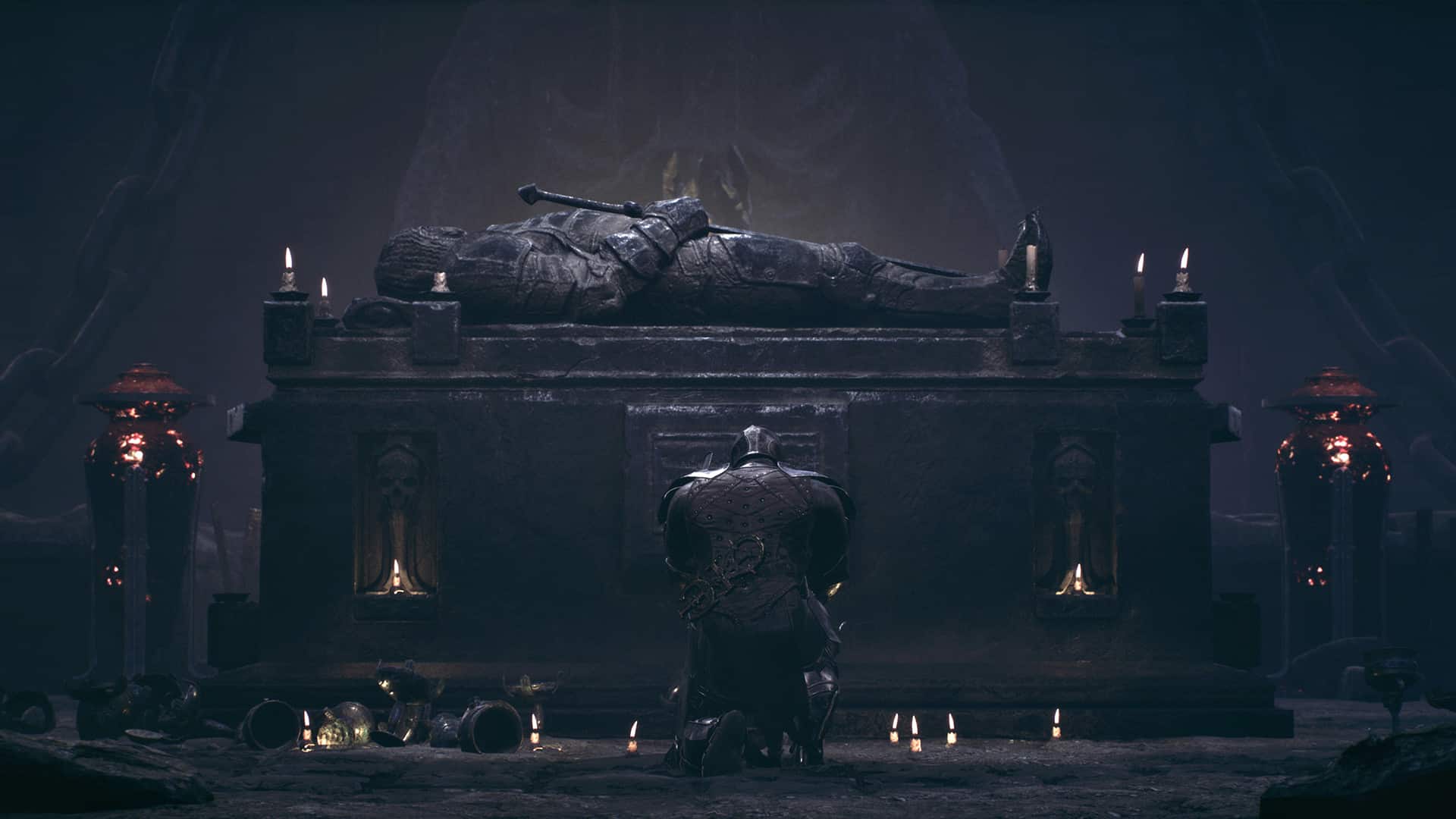
Developer Cold Symmetry has captured something remarkable in its Souls-like. It’s nowhere near as restrictive as Star Wars Jedi: Fallen Order, nor does it grant easily overpowered builds like The Surge 2 or Foregone. While the almost hero shooter-esque shells and limited weapons may disappoint some, I think it will open the door for other players previously daunted by the mountain of choices in Dark Souls proper.
I tested two of the game’s four shells and both available weapons with them, and every combination felt distinct. You still have agency in how you play; it’s just going to be doubtless easier for newcomers to figure out what works best for them. The absence of online invaders may also make the experience less daunting.
It’s staggeringly hard to tell that Mortal Shell isn’t a AAA production. It has that dreadful-yet-alluring atmosphere like its spiritual predecessors, boasting Gothic art direction that evokes the medieval Dark Ages’ desperation perfectly. Every enemy has crystal-clear timing and effortlessly smooth animations. Characters who are voiced enjoy marvelous performances, as rich as they are ominous. Each environment I explored was dripping with rock-solid sound design, music fading in and out like a ghost between pivotal moments, leaving you to wander alone in the darkness or tremble at the thunder of a boss.
And what wonderful bosses it has, with the first two I encountered being like a rabid, vampiric turn on Tolkien’s Gollum and a hoofed ice beast with fists larger than my shells’ bodies. Yet with each, I could quickly pick up on their tells and strategies. The former was all about leaping rushes, so parrying and dodging would be crucial to keep him off my back. The latter’s charge rush slips up on the patches of ice in its cavern, leaving it open for strikes for a handful of seconds. Destroying each boss is as much about strategy as it is a matter of patience, in more ways than one.
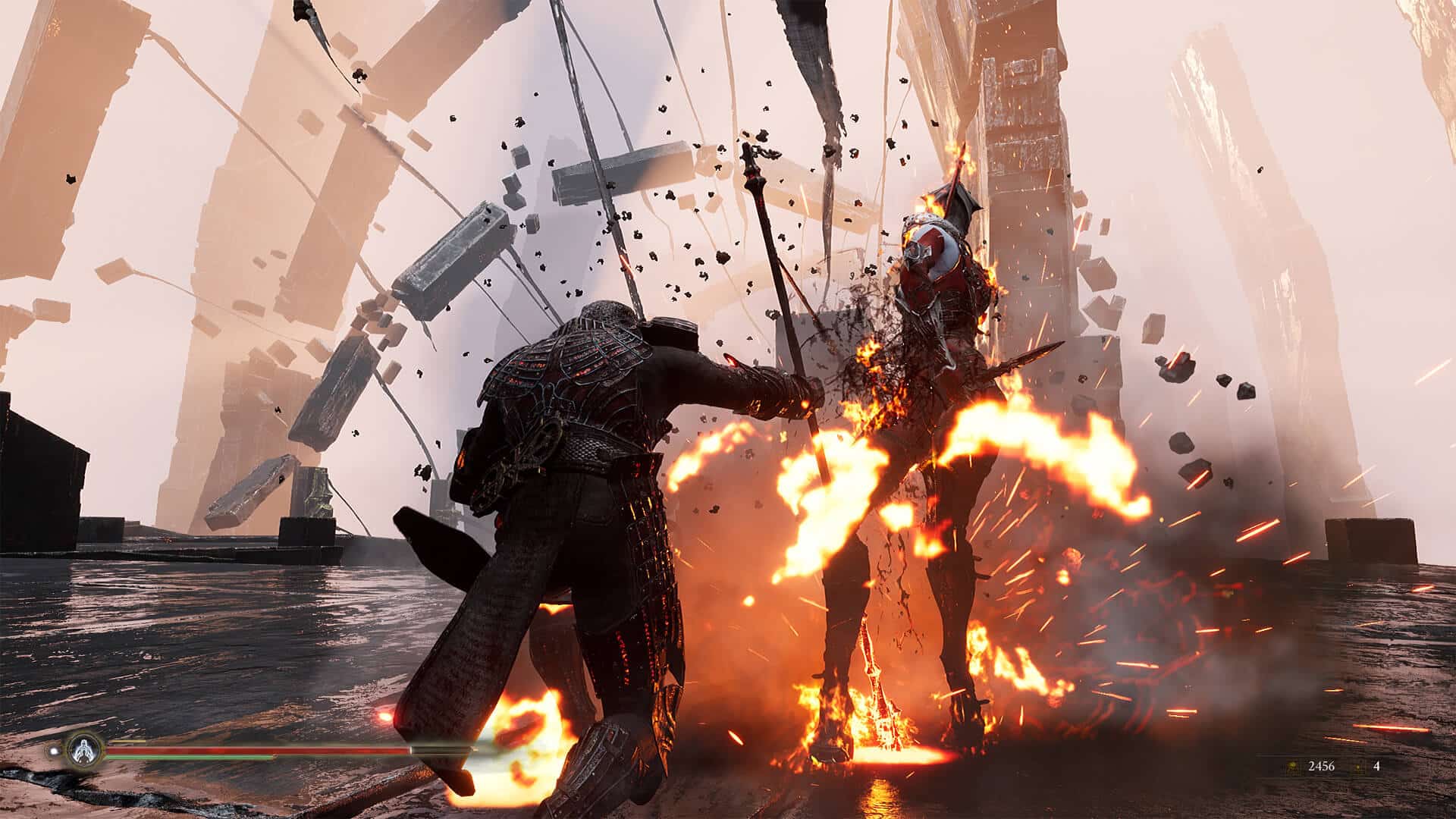
You see, rather than making an Estus flask equivalent, Mortal Shell opts for regenerating mushrooms that have a cooldown, but which can also be collected around the environment. At the cost of your resolve meter, you can take your time, acquiring a sizable amount of the mushrooms, but to do so requires biding your time, dealing with opponents in your way as you slowly cut a path, taking quick side-ventures to grab more of them.
Mushrooms also heal you over time, rather than all at once, stabilizing your health when poisoned and rewarding defensive behavior when wounded. It takes little time to consume them, but just like with an Estus, you have to mind your use carefully in a fight. I’m not sure if everyone will be on board with this decision, but I found it a reasonable alternative.
Other than the shells and upgrades locked out, the only aspect that I’ve yet to experience is Mortal Shell’s magic system, which seemed inaccessible in the demo provided to us. Thankfully you’re still given a capable arsenal to handle opponents, regardless of whether you rely on magic. I especially recommend upgrading your weapons, which, unlike your shells, require unique items that refine them into devastating tools.
All told, Mortal Shell is a refreshingly complete package, even in this early build. While there’s some optimization and polish to be done, this doesn’t feel like a game that’s still in alpha. If what I played of Mortal Shell’s any indication, Cold Symmetry has a hit on its hands. Cold Symmetry is giving away closed beta codes for those eager to cut their teeth in the twisted woods of Fallgrim between July 3 and July 10.

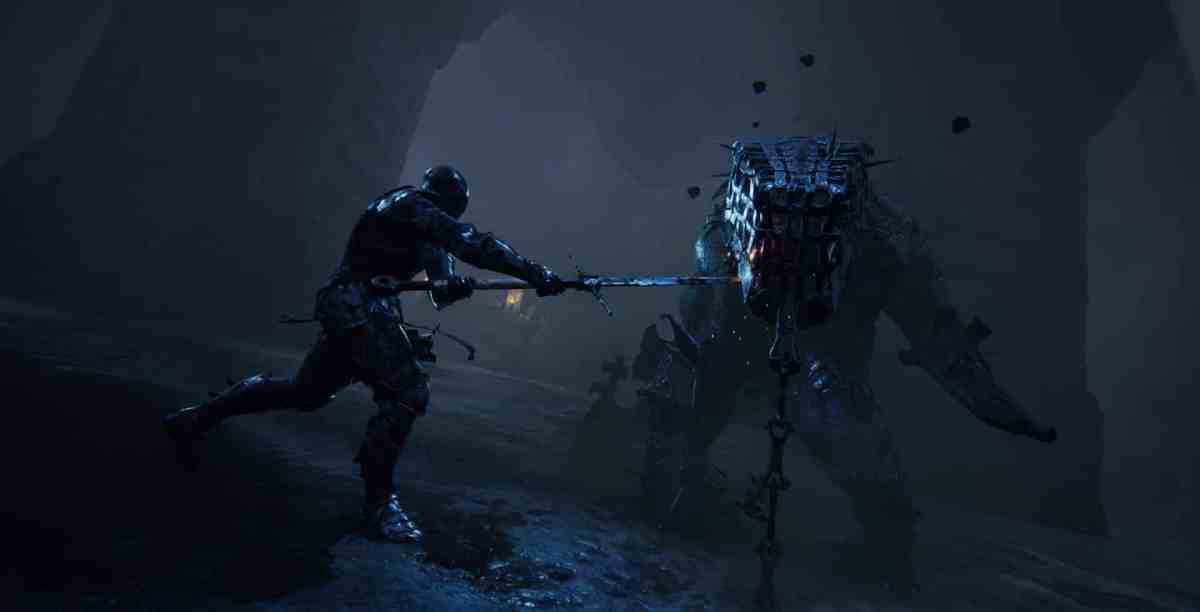

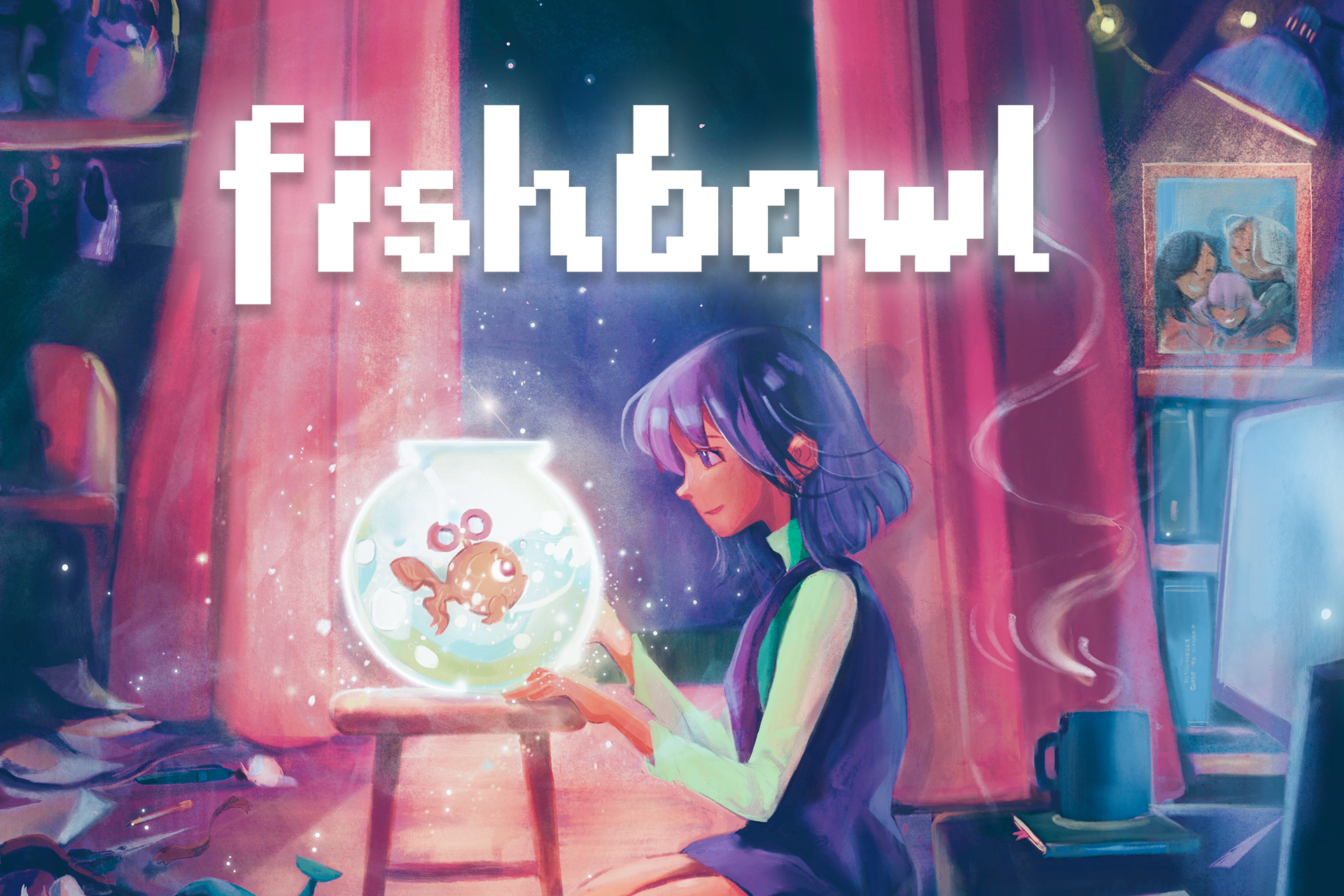


Published: Jul 2, 2020 11:00 am